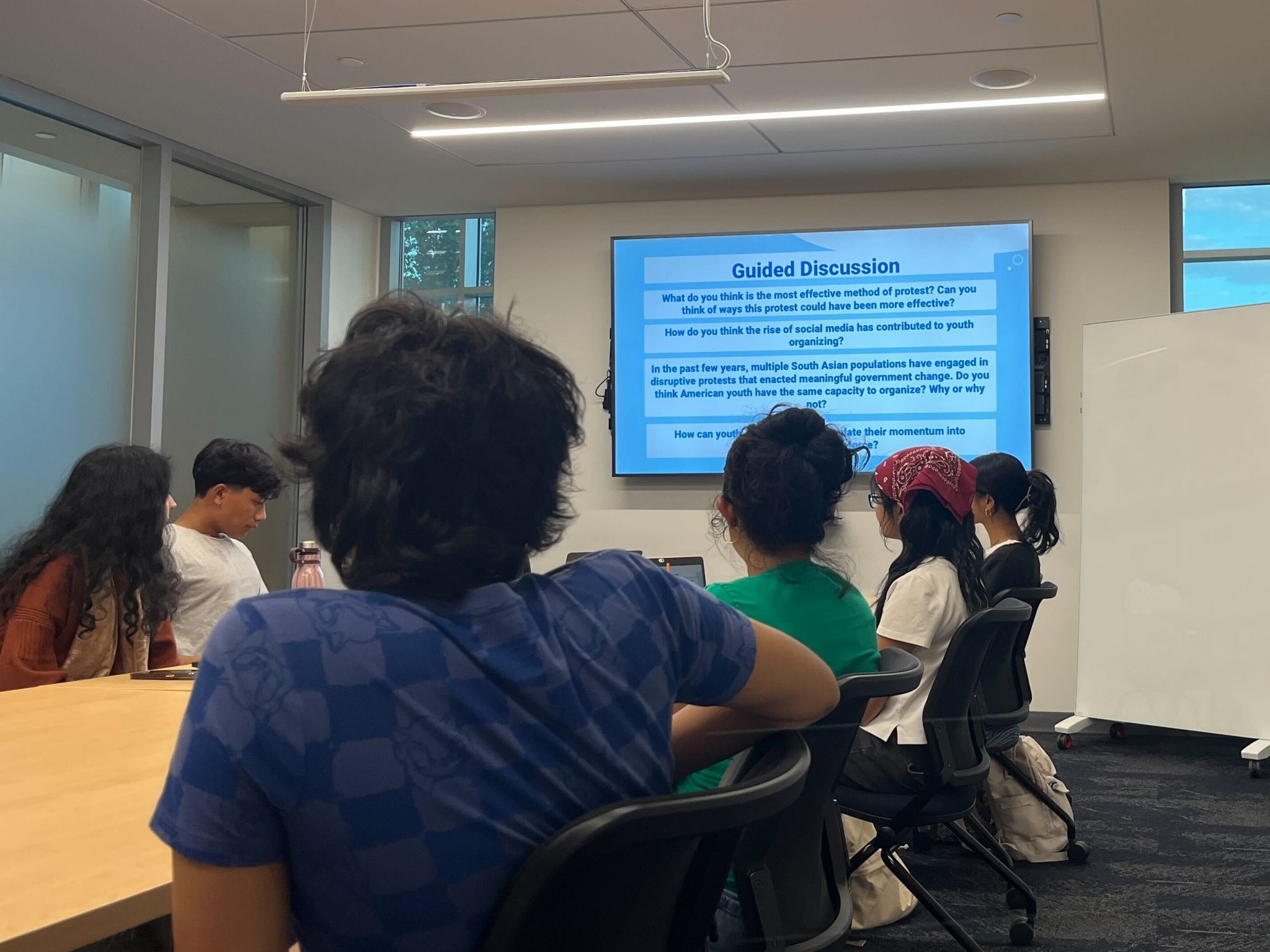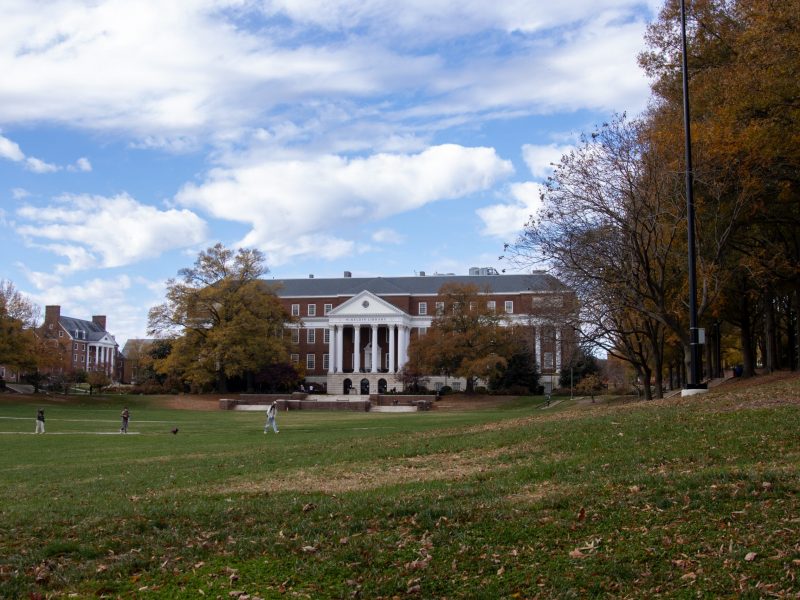The Nepali Student Association and Asian American Policy Union co-hosted a roundtable discussion Tuesday about the deadly protests in Nepal this month that led to a regime change.
Violent protests in Nepal resulted in at least 72 deaths and the destruction of government buildings and politicians’ homes, the Associated Press reported. A government ban on some social media platforms earlier this month sparked the widespread demonstrations against political corruption.
Dipsu Shrestha, the Nepali Student Association’s culture chair, presented a slideshow to the attendees at the roundtable, which discussed the history of Nepal and context behind current events.
The senior public health practice major said it was important to host this discussion to commemorate the lives lost in the protests and because corruption has been an ongoing issue in Nepal.
“There were so many young lives that were lost, and I feel like obviously they’re gone, but I wanted to make it feel like they left for an impact that they made,” she said.
[UMD students honor lost Palestinian lives with campus art demonstration]
Suyog Gyawali graduated from this university last year but said he comes back for Nepali Student Union events because they keep him closer to his country.
Gyawali said what happened in Nepal is emotional and thinks it’s important to emphasize that the protests are about corruption, not only the government’s social media ban.
The Nepalese government announced a social media ban Sept. 4 on platforms including Facebook, X and YouTube because the companies failed to register with the government. The restriction was lifted after police opened fire and killed at least 19 protesters on Sept. 8, according to the Associated Press.
The prime minister’s headquarters, the offices of the president, the supreme court, key government ministries and several police stations were set on fire by protesters on Sept. 9, the day after police shot at protesters, according to the Associated Press.
Prime Minister Khadga Prasad Oli resigned, and Sushila Karki — the country’s former supreme court chief justice — was named prime minister on Sept. 12, becoming the country’s first woman to hold that title. Parliamentary elections will take place March 5.
Nayan Kadabha, co-president of the Asian American Policy Association, said they pitched the Nepali Student Association collaboration during the roundtable. The group has been talking about advocacy in the local area and thought this conversation would gain traction in the community.
[New UMD Unity Center celebrates culture, creates gathering space for students]
“We wanted to reach out to [the Nepali Student Association] to make sure their voices were heard and they were included in the discussion because that was really important,” Kadabha said.
Kadabha said they learned a lot about Nepal in the discussion and that many people at the event had the opportunity to speak on the recent events.
Talking points brought up during the roundtable included effects of the social media ban, comparisons between Nepali protests and U.S. protests and dealing with corrupt politicians moving forward.
Shrestha, the Nepali Student Association culture chair, presented three ways students can help the situation in Nepal — raising political awareness, educating themselves on Nepal’s constitution and donating to help rebuild the country’s infrastructure.
Some attendees at the roundtable expressed hope for a positive future in Nepal in the aftermath of recent events.
“My biggest hope would be to have a stable country, a peaceful country with no corruption and just patriotic people who want to do right by the country,” Gyawali said.



